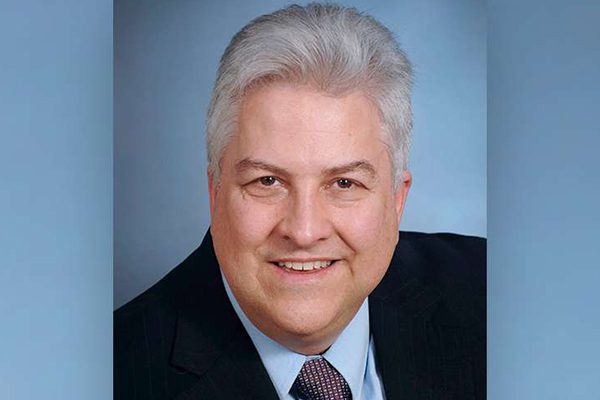Dr. Conrad’s Year as President of IEEE-USA

As the 2020 president of IEEE-USA, Dr. Jim Conrad’s year started pretty much as he anticipated, with lots of travel and meetings. When everything changed in March, he and the entire IEEE organization immediately shifted gears to make their traditional services, events and conferences available in non-traditional ways, and to expand their professional development programs in support of members who were losing their jobs.
A professor of Electrical and Computer Engineering in The William States Lee College of engineering, Dr. Conrad served as IEEE-USA president in 2020. IEEE-USA is an organizational unit of the Institute of Electrical and Electronics Engineers (IEEE). As the world’s largest technical professional organization, IEEE’s mission is to advance technology for humanity. IEEE-USA recommends policies and implements programs specifically intended to benefit the members, the profession and the public in the United States.
“Everything was normal until mid-March,” Dr. Conrad said. “I did a lot of travel to start the year and fully expected that to continue throughout the year. Then everything came to an abrupt halt and I immediately had five trips canceled in a month.”
With members unable to travel, IEEE began converting meetings and conferences to online options. Events such as traditionally day-long board meetings were split into multiple smaller online segments, to make them more manageable and help reduce people’s online overload.

“For conferences there was an actually an upside, in that for some events more people were able to attend,” Dr. Conrad said. “With conferences being virtual we reduced prices, and people didn’t have to pay travel costs to attend. So, we actually had increases in the numbers of presenters and attendees, which was great.”
The spread of COVID-19 also began impacting the economy and subsequently the jobs of IEEE members. IEEE has always provided professional development services for its members, and those services were increased and made more readily available.
“We opened up our professional development programs for free to members,” Dr. Conrad said. “This included e-books and podcasts, for which we saw five times as many request and downloads.”
IEEE created a COVID-19 resources web page, with information for working more efficiently in remote scenarios. It also doubled its number of instructional webinars, and the people who attended those webinars increased by three times.
“We had a lot of time for introspection,” Dr. Conrad said. “We took advantage of that to look at our processes and services. We did some analysis to see what is working and what isn’t.”
One decision the board made was to reach out more to attract student members. The number of students participating in IEEE has been steadily dropping this year, so the decision was made to reduce student fees by half for at least the next two years.
“As a whole my year as president was very different from what I anticipated,” Dr. Conrad said, “but we did a lot of positive things. I’m very appreciative of the help of the IEEE-USA staff and our member volunteers. It was rewarding to be able to help people during this time.”
Dr. Conrad earned his bachelor’s degree in Computer Science from the University of Illinois, Urbana, and his master’s and doctorate degrees in computer engineering from North Carolina State University. He is currently a professor at UNC Charlotte and Associate Department Chair of Electrical and Computer Engineering. He teaches and conducts research in the areas of embedded systems, robotics, parallel processing, artificial intelligence, and engineering education. He has published eight books in the field of embedded systems and robotics.